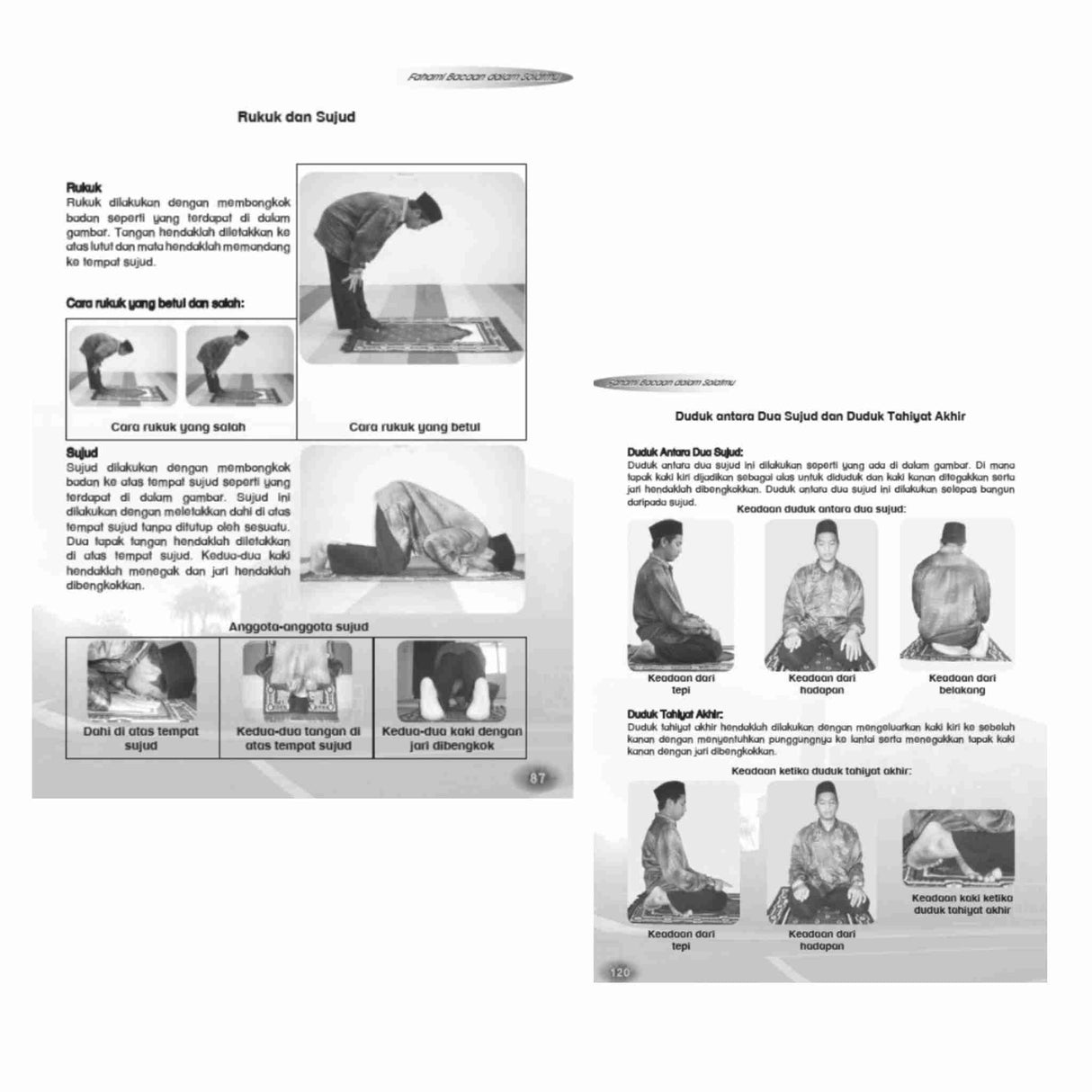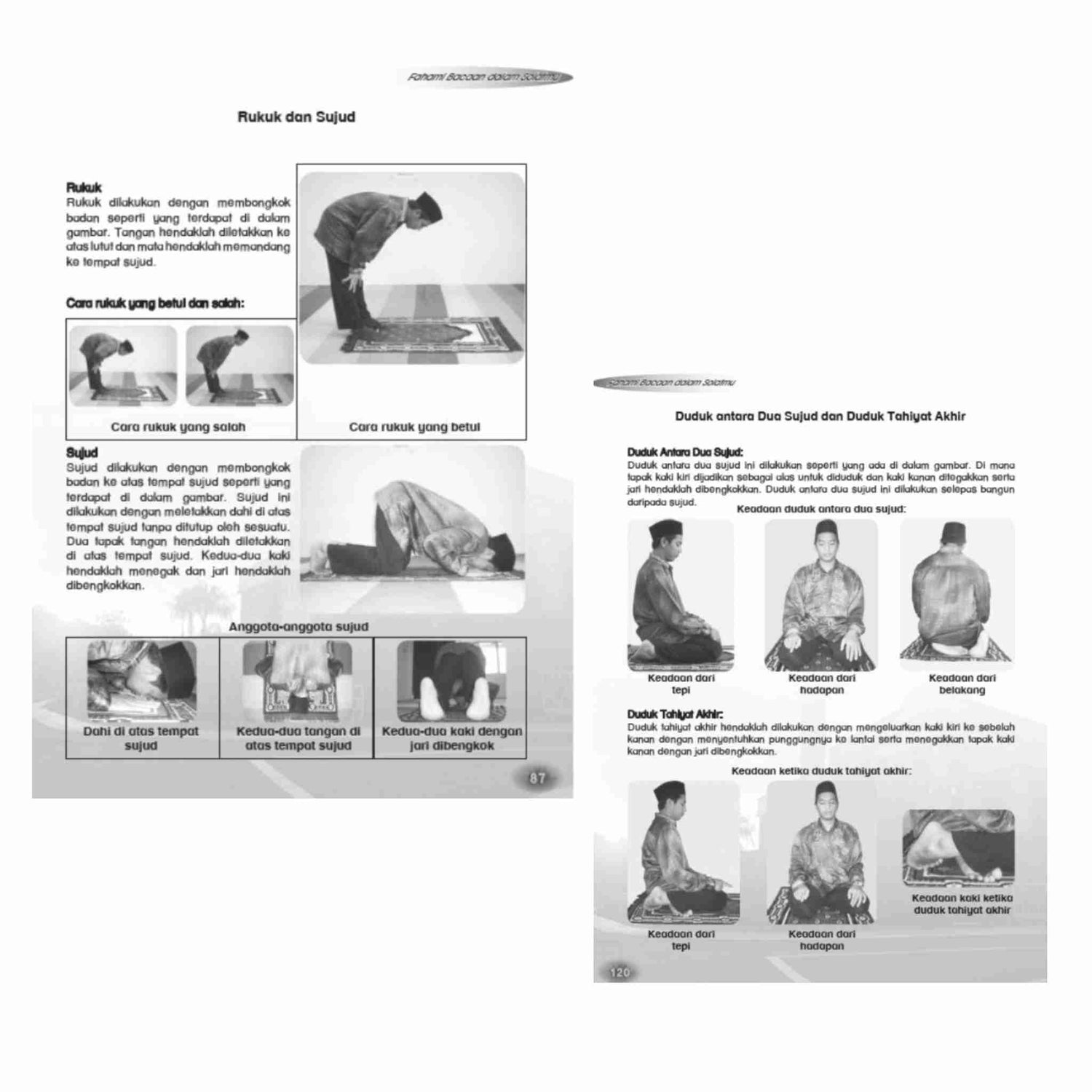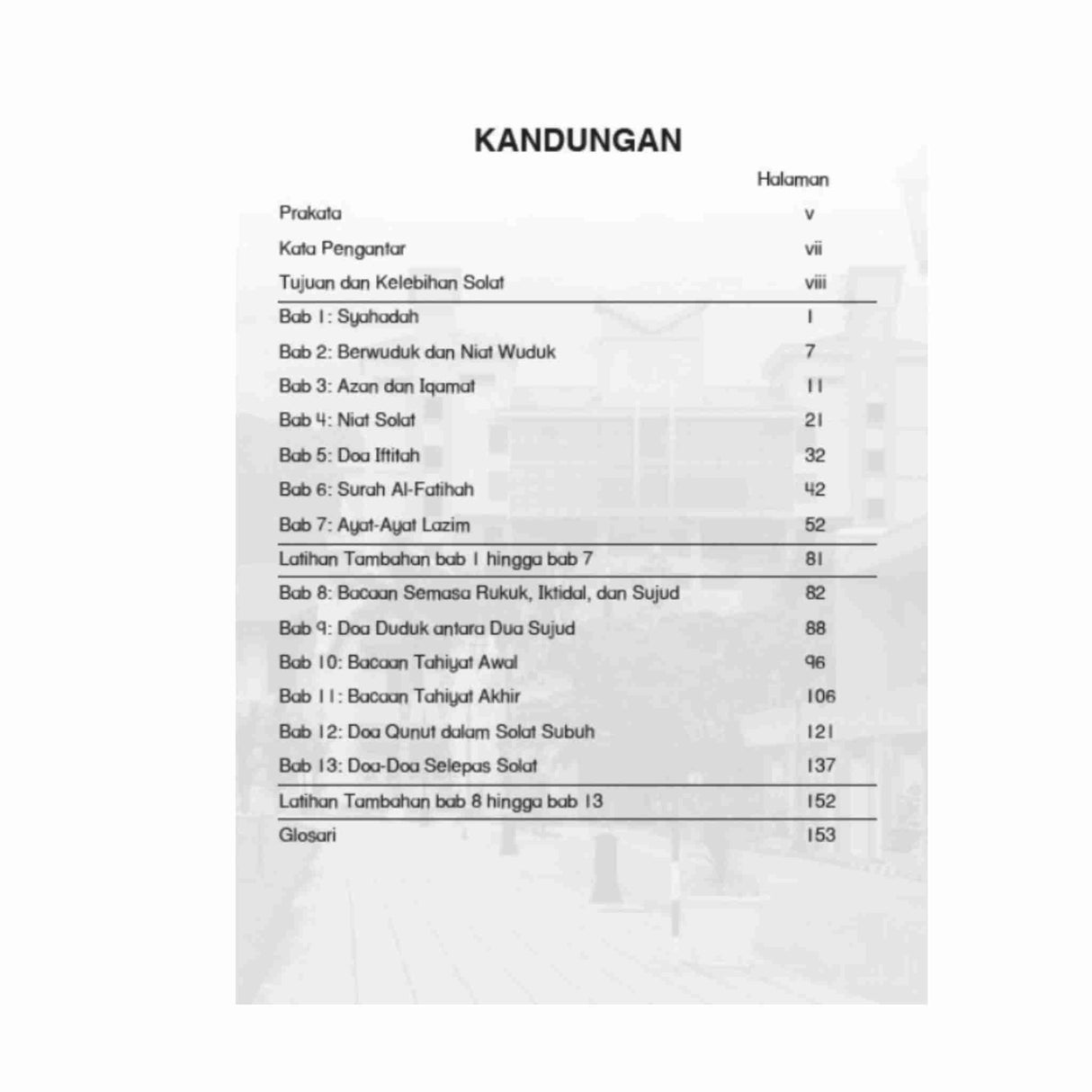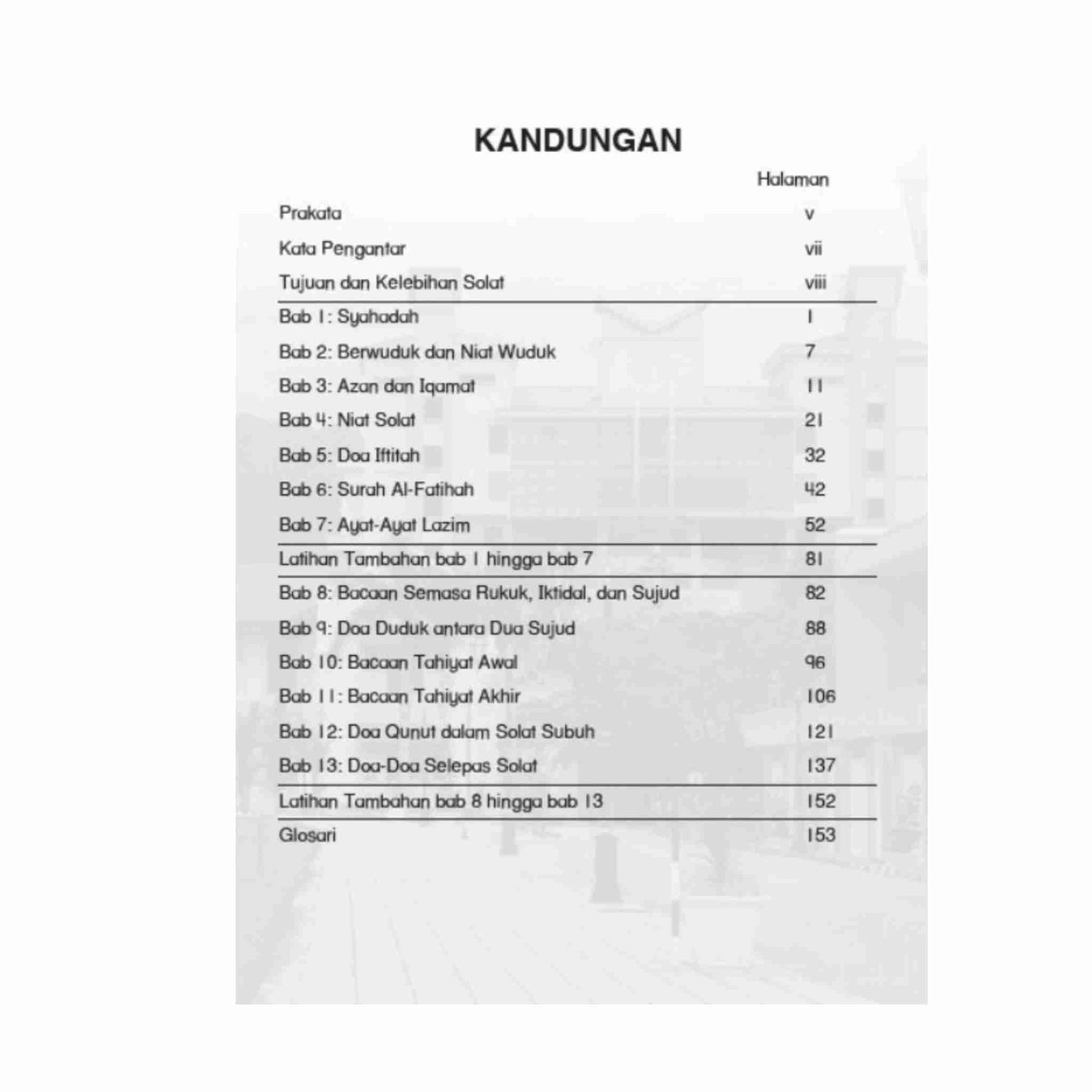Key Takeaways:
-
Moral Compass: The Quran portrays Salah as a powerful deterrent against evil and vice, guiding believers toward righteous conduct.
-
Remembrance of God: The most important objective of Salah is to establish a conscious and continuous remembrance of Allah (SWT) in our hearts.
-
Holistic Practice: Salah is not merely a ritual; it is deeply intertwined with other essential aspects of Islam, such as Zakat (charity) and obeying the Messenger of Allah (PBUH).
Prayers (Salah)
Surah Al Ankabut [29:45] You shall recite what is revealed to you of the scripture, and observe the Prayers (Salah), for the Prayers prohibit evil and vice. But the remembrance of GOD (through Salat) is the most important objective. GOD knows everything you do.
Surah Ar Rum [30:31] You shall submit to Him, reverence Him, observe the Prayers (Salah), and — whatever you do — do not ever fall into idol worship.
Surah Luqman [31:4] Who observe the Prayers (Salah), give the obligatory charity (Zakat), and as regards the Hereafter, they are absolutely certain.
Surah Luqman [31:17] “O my son, you shall observe the Prayers (Salah). You shall advocate righteousness and forbid evil, and remain steadfast in the face of adversity. These are the most honorable traits.
Surah Al Ahzab [33:33] You shall settle down in your homes, and do not mingle with the people excessively, like you used to do in the old days of ignorance. You shall observe the Prayers (Salah), and give the obligatory charity (Zakat), and obey GOD and His messenger. GOD wishes to remove all unholiness from you, O you who live around the Sacred Shrine, and to purify you completely.
Surah Fatir [35:18] No soul can carry the sins of another soul. If a soul that is loaded with sins implores another to bear part of its load, no other soul can carry any part of it, even if they were related. The only people to heed your warnings are those who reverence their Lord, even when alone in their privacy, and observe the Prayers (Salah). Whoever purifies his soul, does so for his own good. To GOD is the final destiny.
Surah Fatir [35:29] Surely, those who recite the book of GOD, observe the Prayers (Salah), and from our provisions to them they spend — secretly and publicly — are engaged in an investment that never loses.
Surah Ash Shuraa [42:38] They respond to their Lord by observing the Prayers (Salah). Their affairs are decided after due consultation among themselves, and from our provisions to them they give (to charity).
Surah Al Mujadilah [58:13] If you failed to give to charity before conferring, then repented thereafter, GOD accepts your repentance. You shall observe the prayers (Salah), give the obligatory charity (Zakat), and obey GOD and His messenger. GOD is fully Cognizant of everything you do.
These verses highlight the significance of the Prayers (Salah) in the life of a believer:
-
Prohibiting Evil and Vice: Salah is presented as a means to prohibit evil and vice. It serves as a moral and spiritual compass, guiding individuals away from wrongdoing and towards righteous conduct.
-
The Most Important Objective: Remembrance of God through Salah is described as the most important objective. This underscores the central role of Salah in maintaining a conscious connection with the Divine and cultivating mindfulness in all aspects of life.
-
Submission, Reverence, and Certainty about the Hereafter: Believers are instructed to submit to God, revere Him, and observe Salah. Those who observe Salah and give Zakat, with certainty about the Hereafter, are described as people of conviction and faith.
-
Advocating Righteousness and Forbidding Evil: Salah is associated with the honorable traits of advocating righteousness, forbidding evil, and remaining steadfast in the face of adversity. It is not merely a ritual but a practice that instills virtuous qualities.
-
Settling in Homes and Avoiding Excessive Mingling: Believers are advised to settle in their homes, avoiding excessive mingling with people. This is coupled with the instruction to observe Salah and give Zakat. The combination of these acts is seen as a means of purifying the believers.
-
Personal Responsibility for Sins: The concept that no soul can carry the sins of another emphasizes personal responsibility. Those who heed warnings, observe Salah, and purify their souls do so for their own good, with the final destiny being with God.
-
An Everlasting Investment: Those who recite the Book of God, observe Salah, and spend from God's provisions are described as engaged in an investment that never loses. This highlights the enduring and rewarding nature of the act of worship.
-
Decision Making Through Consultation and Salat: Believers respond to their Lord by observing Salah. Their affairs are decided after due consultation, emphasizing the role of Salah not only in individual spirituality but also in communal decision-making.
-
Repentance and Acceptance: The importance of Salah is reiterated in the context of repentance. Even if one fails to give to charity before conferring but repents thereafter, God accepts the repentance. Observing Salah is mentioned alongside giving Zakat and obeying God and His messenger.
These verses collectively emphasize that Salah is not just a ritualistic practice but a comprehensive and integral aspect of a believer's life, influencing behavior, morality, decision-making, and the overall purification of the soul.
Enhance your understanding of the prayers and enrich your Salah experience with the insightful guide, Fahami Bacaan Dalam Solatmu.
Explore the spiritual dimensions of Salah in AlHiqma's articles.
Learn more about the importance of Zakat, a pillar of Islam, in our comprehensive articles.
Frequently Asked Questions:
Q: How often should Muslims pray?
A: Muslims are obligated to pray five times daily: Fajr (dawn), Dhuhr (noon), Asr (afternoon), Maghrib (sunset), and Isha (night).
Q: Are there different types of Salah?
A: Yes, there are obligatory prayers (Fard), recommended prayers (Sunnah), and voluntary prayers (Nafl).
Q: Can I pray Salah in any language?
A: While understanding the meaning is important, it's recommended to recite the Quranic verses and supplications in their original Arabic during Salah.
Q: What are some common mistakes to avoid during Salah?
A: Common mistakes include rushing through the movements, not focusing on the meaning of the words, and not maintaining proper posture.
Q: How can I improve my concentration and focus during Salah?
A: Find a quiet place, eliminate distractions, and try to understand the meanings of the words you're reciting.

















